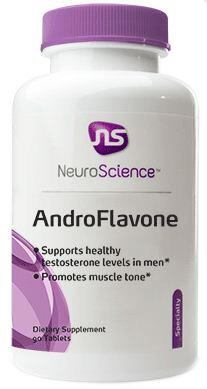How do you define the healthy aging market for nutritional products? Is it about looking younger? Feeling younger? Avoiding age-related diseases? Having more energy? Sleeping well?
Which demographics are most interested in this sector and what kind of nutritional products are they choosing? Don’t all products essentially play in this space? And what does ‘healthy aging’ look like moving forward?
To address these questions, NutraIngredients-USA spoke to experts in nutrition and marketing to get their perspective on where the opportunities lie.
NMI: ‘Healthy Aging’ is being embraced across the entire demographic spectrum

First, we caught up with Steve French, Managing Partner at the Natural Marketing Institute, who told us that NMI has taken two twists on healthy aging: “It’s not just applicable to the aged, and it’s not just relevant to physical health, but includes emotional, financial, technological health that play into other adjacent markets.”
“Consumers are taking control of their health, taking more responsibility for it,” he said. “They’re dissatisfied with traditional health care, with the side effects from prescription drugs.”
The market has traditionally been driven by Boomers, who NMI credits with having been, “instrumental in redefining the idea of aging into ‘healthy aging’ and even further into ‘anti-aging’. They are a transformational generation and their desire to remain relevant is fueling their drive to stay vital, independent and healthy.”
But healthy aging is not only about Boomers anymore. ‘Healthy Aging’ is being embraced across the entire demographic spectrum, he said. Increased stress levels for the younger generations are diminishing the quality of their lives, he said.
“The need for products and services to promote ‘healthy aging’ is trending to the younger generations; an imperative that cannot come soon enough.”
NMI data indicates that the pursuit of the benefits of a fountain of youth has grown almost 50% over the past 5 years, with almost a third of consumers admitting that they are always searching for the next ‘fountain of youth remedy’. Another eyebrow raising statistic is that twice as many Millennials than Boomers are looking for a fountain of youth remedy, said French.
So what are the issues that mostly drive this segment? According to NMI’s 2013 report on healthy aging, the top four issues as:
1. Mental/brain,
2. Sleep,
3. Energy – enough to do what I want to do (and not just about energy shots),
4. Weight management
The shift to the younger generations is good for the supplements industry, with data showing that the biggest increase in use is coming from Millennials. “Supplement use among Boomers is dropping off as their health issues become more severe,” he said.
Hilton: The same solution for different problems

For Jeff Hilton, co-founder of BrandHive, consumers have a different understanding of ‘healthy aging’ depending on their age group. “For Millennials, it’s about continuing to live their chosen lifestyle into their older years. For Boomers, it’s about health preservation and addressing the issues of aging. It is problem solution related,” he said.
“The age groups often use the same solution for different problems,” he added. “Take energy products – for a Boomer it’s about staying alert for meetings, while for Millennials it’s about pulling an all-nighter.”
And the last point has us thinking back to the NMI data which had sleep as the #2 issue for healthy aging. “Millennials do not sleep well as a group,” said Hilton.
So are consumers thinking about ‘healthy aging’? “I see ‘healthy aging’ as industry speak,” said Hilton, “but it’s definitely on the rise. It’s a gathering point on issues and conditions.”
Datamonitor: “We are bullish about the prospects for ‘healthy aging’ in the future”
Next we caught up with Tom Vierhile, Innovation Insights Director with Datamonitor, who told us that men and women appear to approach ‘healthy aging’ differently, according to Datamonitor Consumer’s 2014 consumer survey of US consumers.
The respondents were asked to rate their level of concern for about 50 different health and appearance-related concerns.
“Among female consumers, the top condition they are ‘extremely concerned’ about is ‘maintaining the firmness/elasticity of your skin’ followed by ‘looking old’. ‘Muscle tone’, ‘Cellulite’ and ‘Stretch marks’ were tied for third in this list of over 50 concerns,” he said. “What this says to me is that healthy aging includes avoiding the appearance of “looking old” and that the general condition of the skin is a key area that women are concerned about when it comes to aging.
“It was interesting, then, to contrast the female responses with responses for males. The same survey focusing on men found “baldness/hair loss” as the top concern out of more than 50 different concerns that men are “extremely concerned’ about. ‘Muscle tone’, ‘dry/sore/tired/irritated eyes’, and ‘Feeling old’ were all tied for second on the list. What this appears to say is that healthy aging for men involves minimizing many of the outward signs of aging such as hair loss and loss of muscle tone.
“It is interesting that both men and women put a lot of stock in muscle tone which suggests that fitness is closely related to healthful aging.”
What kind of products/health conditions are they considering?

“For men, it seems that there is a lot of concern around loss of energy and virility that come with aging, hence the growth of interest in supplement products that fend off so-called ‘manopause’,” said Veirhile. “For women, it may be more focus on products that can improve the health of the skin which includes topical skincare products, as well as foods that may help improve skin tone like hydrating beverages, yogurt and more.”
“It is interesting to see how the purchase habits of older consumers differ over those of younger consumers. Senior consumers are more likely than older boomers or even younger boomers to take multivitamin supplements, eat whole grain foods, eat omega-3 rich foods or supplements and even eat antioxidant rich foods. And there is also some evidence that younger Baby Boomers are much more likely to consume sports and energy drinks versus older Baby Boomers and senior consumers.”
Age with grace
Vierhile added that consumers want to age with grace, want to continue to be able to do the things they love to do, and do not want health to be a limiting factor in their enjoyment for life. “Given these concerns, we are bullish about the prospects for ‘healthy aging’ in the future.”
Euromonitor: ‘The ultimate goal is a rise in healthy life expectancy’

In a blog posting from earlier this year, Diana Cowland, Senior Analyst - Health and Wellness, Euromonitor International, noted that consumers want to extend their years living a ‘full healthy life’. It’s not just about living longer, it’s about living a healthy life for longer.
“Across all regions covered by Euromonitor International, there is at least a 7-year difference between life expectancy and healthy life expectancy at birth” she wrote. “In regions such as Asia Pacific and Latin America, this difference is closer to 10 years. Hence, manufacturers looking to target the ageing population should focus their efforts on closing this gap.”
The burden of cognition and memory offers a significant opportunity, but consumers remain skeptical about their efficacy, she said. “In 2012, global sales for products supporting brain health and memory remained low at just US$527 million. In order to achieve growth, the focus should be on short-term tangible benefits, such as promoting improved memory and concentration, to remove skepticism.”
NutraIngredients Healthy Ageing forum – October 28
NutraIngredients is proud to host our first healthy ageing forum, an hour long online discussion about a booming sector with leading experts.
From the key markets to the category-busting formulations and the science and regulations governing the sector, nutrition experts will debate healthy ageing past, present and future from all angles.
Sign up for free here and join us on October 28 from 14:00 Paris time.

